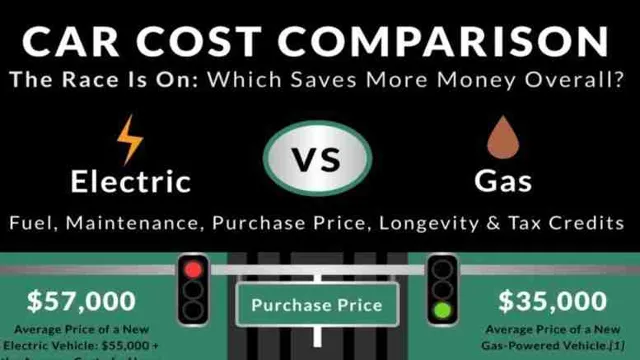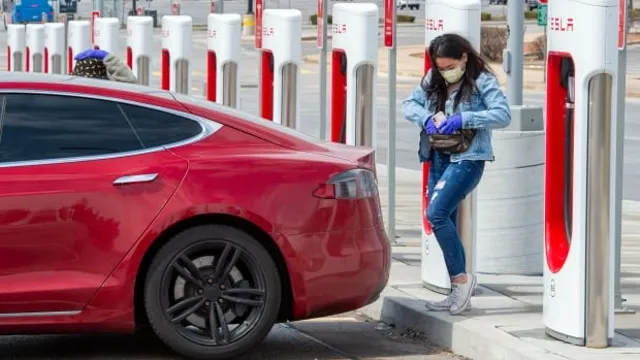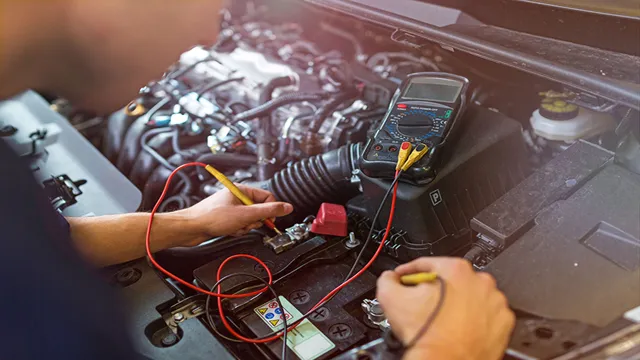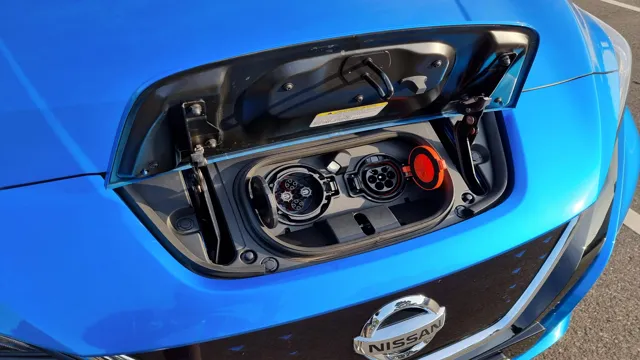The Shocking Truth about the Cost of Maintaining an Electric Car: Tips to Save More!
Electric cars are increasingly becoming popular, and many people are interested in understanding the costs associated with them. When it comes to electric cars, it’s important to consider several different factors, including the initial cost of the car, ongoing maintenance and repair costs, and electricity costs. In the long run, electric cars can actually save drivers money compared to traditional gasoline-powered vehicles, but it’s essential to understand the unique costs involved.
In this blog post, we’ll explore the different costs associated with electric cars, so you can make an informed decision about whether or not an electric car is right for you.
Initial Investment
Investing in an electric car can be expensive initially, but it can save you a lot of money in the long run. The cost of maintaining an electric car is significantly lower than that of a gas-powered vehicle. For starters, the cost of electricity is much lower than that of gasoline.
Plus, electric cars have fewer moving parts, so there are fewer things that can break down and require expensive repairs. Additionally, electric cars require less routine maintenance, such as oil changes and air filter replacements. However, it is important to note that you will need to invest in a home charger and potentially have to pay for installation.
The cost of a charger ranges from a couple of hundred dollars to a few thousand dollars, depending on the type you choose. Overall, while investing in an electric car can be daunting, the long-term savings outweigh the initial costs.
Cost Comparison with Gas Cars
When it comes to comparing the initial investment of electric cars with gas cars, there are a few things to consider. Yes, electric cars may have a higher upfront cost, but there are also several factors that can make them more affordable in the long run. For one, electric cars may be eligible for tax incentives, rebates, and other incentives that can help offset the initial cost.
Additionally, electric cars have lower operating costs, as they require less maintenance and have lower fuel costs than gas cars. Plus, with advancements in technology, electric cars are becoming more affordable and accessible to consumers. So while the initial investment may be higher, it’s important to consider the long-term cost savings and environmental benefits that come with electric cars.
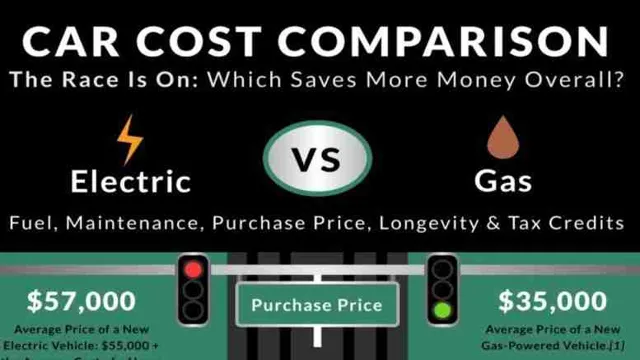
Battery Replacement Cost
When it comes to replacing your battery in your car, it can seem like a daunting task to figure out the initial investment. However, it’s important to consider the long-term benefits of investing in a new battery. The cost of a replacement battery for your car can vary depending on the make and model of your vehicle.
Some batteries may be priced higher due to their higher performance or longer lifespan. While the initial cost may be higher, investing in a high-quality battery can save you money in the long run by lasting longer and needing fewer replacements. So, it’s important to consider the initial investment as a long-term investment in the health and reliability of your car.
Ultimately, investing in a quality battery will ensure that your car is running efficiently and reliably, which is priceless.
Maintenance and Repairs
One of the primary reasons people switch to electric cars is to save money, but many people wonder about the cost of maintaining an electric car. Fortunately, electric cars are cheaper to maintain than their gasoline counterparts due to fewer moving parts and less wear and tear. Electric cars require much less maintenance, and repairs are generally less frequent than gasoline-powered vehicles.
Brake pads and tires may need replacing less often because of regenerative braking, which slows the car down and converts energy to the battery, extending the lifespan of both. Additionally, electric motors do not have oil that needs replacing, nor do they require spark plugs, transmission fluid, or timing belts that may break down over time. Charging an electric vehicle can be done at home, which is also cheaper than visiting gas stations.
So, in conclusion, the cost of maintaining an electric car is much less than that of a traditional car, making it a great investment in saving money in the long run.
Scheduled Maintenance Costs
Scheduled maintenance costs can be a major concern for vehicle owners, as unexpected repairs can be costly and stressful. Maintaining a vehicle is important to ensure that it runs smoothly and safely, and to avoid major issues that can arise from neglect. Regular oil changes, tire rotations, and tune-ups are all critical components of vehicle maintenance that can help to prevent costly repairs down the road.
However, despite regular maintenance, repairs may still be necessary due to normal wear and tear, or unexpected damages. It’s important to budget for these costs and to have a plan in place for unexpected repairs. One way to prepare for maintenance and repair costs is to set aside a specific amount of money each month in a dedicated savings account.
This can help to ease the financial burden of unexpected repairs and ensure that your vehicle stays in top condition. By staying proactive with vehicle maintenance and repairs, you can help to minimize the cost and stress of unexpected breakdowns or unplanned expenses.
Reduced Maintenance Needs
When it comes to investing in a new piece of equipment, reducing maintenance needs is a key consideration. After all, lower maintenance requirements mean less downtime and lower repair costs, which can ultimately help save you money in the long run. By opting for equipment that is designed to be low-maintenance from the get-go, you can significantly reduce your overall maintenance needs.
This could mean choosing a model that is designed with fewer moving parts or one that has been constructed using more durable materials. Additionally, some equipment comes with built-in features that make ongoing maintenance easier, such as easy-to-access components or self-cleaning functions. By taking the time to select equipment that is designed to be low maintenance, you can help ensure that you are able to keep your operations running smoothly with minimal interruptions.
Ultimately, this can help you save both time and money, while also helping to keep your workforce safer and more productive.
Repair Costs
When it comes to owning a car, maintenance and repairs are a necessary evil that cannot be avoided. While regular maintenance can help prevent major issues down the road, there will always be unexpected repairs that arise. Unfortunately, these repairs can be costly, especially if you drive an older or high-end vehicle.
It’s important to budget for repairs and to educate yourself on what common repairs are for your specific make and model. It’s also helpful to have a trusted mechanic who won’t overcharge you for services. One thing to consider is purchasing a vehicle warranty or an extended warranty to potentially save money on future repairs.
Overall, being prepared for maintenance and repairs is essential to keeping your car on the road and avoiding any unexpected surprises.
Charging Costs
Maintaining an electric car can be a big financial decision for many. When compared to traditional gas-powered vehicles, electric cars have higher upfront costs. However, the overall cost of maintaining an electric car can be significantly lower than that of a gas-powered one.
One of the major costs associated with electric cars is charging them. Charging an electric car can cost between $1 to $5 per charge, depending on the location and the type of charger used. If you charge your electric car at home, you can save a lot on charging costs.
On average, it costs less than $1 per charge to charge an electric car using a level 2 charger at home. Additionally, some electric cars are equipped with regenerative braking, which means they can partially recharge their batteries while braking, reducing the need to charge them frequently. Overall, while electric cars have higher upfront costs, their lower maintenance and charging costs can help save money in the long run.
Home Charging Costs
If you’re a proud owner of an electric vehicle, then charging costs are likely a topic of interest for you. Home charging costs can vary based on several factors like electricity rates, charging speed, and the efficiency of your vehicle. Generally speaking, charging at home is more affordable than public charging stations due to reduced service fees and convenience.
Your annual charging cost at home may also depend on the number of miles you drive and the time you spend charging. To maximize savings, it’s important to choose a charging plan that best meets your needs based on your budget, driving habits, and vehicle type. By keeping your EV charged at home, you’ll save money in the long run while also contributing to a cleaner environment.
Public Charging Costs
When owning an electric vehicle, it is essential to consider the costs of public charging. The cost of charging can vary depending on the location and type of charging station. Some stations may be free, while others may charge a flat fee or by the amount of time or energy used.
It is essential to research and compare prices to ensure you are getting the best deal. One useful tool to use is PlugShare, which provides information on charging stations and their fees. Though public charging may be more expensive than charging at home, it is essential for long trips or if you do not have access to a private charging station.
By planning ahead and finding the best option for your needs, you can save money and keep your electric vehicle charged and ready for the road.
Additional Factors to Consider
When looking at the cost of maintaining an electric car, there are many additional factors to consider beyond just the initial purchase price. One important factor is the cost of electricity, which can fluctuate depending on where you live and how much you drive. It’s also important to factor in the cost of any necessary upgrades or repairs, as well as the cost of replacing the battery if it begins to wear down over time.
Another consideration is the availability of charging stations in your area, as you may need to pay for access to these stations if they are not free to use. Finally, it’s worth keeping in mind that while electric cars may require less maintenance than traditional gas-powered vehicles, they can still require periodic maintenance like tire rotations and brake checks. All of these factors can add up over time, so it’s important to carefully consider the true cost of owning an electric car before making a purchase.
Conclusion
In the world of cars, there’s no doubt that electric vehicles are the shiny new toy. And while they may seem like a more expensive option upfront, the cost of maintaining an electric car is actually a no-brainer: it’s significantly cheaper than a gas-guzzling counterpart. Say goodbye to oil changes, spark plugs, and other maintenance tasks that add up over time.
With electric cars, you’ll save a small fortune on maintenance fees, not to mention fuel costs. Plus, you’ll be doing your part to help the environment by reducing your carbon footprint. So if you’re looking to save money and be a trendsetter all at once, switching to an electric car is a no-brainer.
It’s time to plug in, power up, and say hello to the low maintenance costs and a brighter, cleaner future.
FAQs
How much does it cost to maintain an electric car?
Electric cars have lower maintenance costs than gasoline cars due to fewer moving parts. The cost of maintaining an electric car varies depending on the model and usage. On average, it may cost around $400 per year for regular maintenance of an electric car.
Are electric cars expensive to maintain?
No, electric cars have lower maintenance costs than gasoline cars as they have fewer moving parts, no oil changes, and less wear and tear on brakes due to regenerative braking. However, the price of maintenance may vary depending on the model and usage.
What are the common maintenance issues with electric cars?
Electric cars have fewer maintenance issues than gasoline cars, but some common issues include battery degradation, software updates, and charging port maintenance. Most of these issues can be resolved with regular maintenance.
Can I do the maintenance of my electric car at home?
It is not recommended to do maintenance on your electric car at home unless you are a certified electric vehicle technician. Electric cars are more complex than gasoline cars and require specialized knowledge and equipment to maintain. It is best to take your electric car to a certified mechanic or dealership for maintenance.

